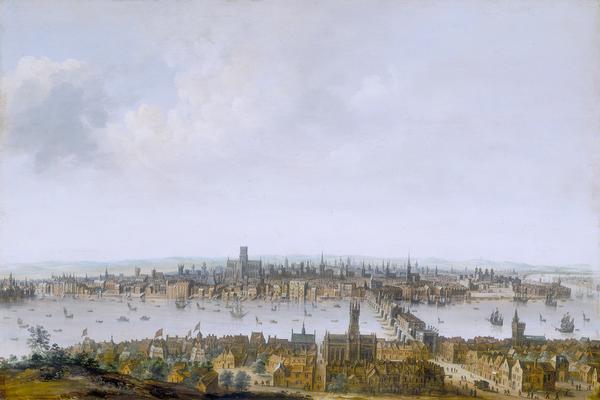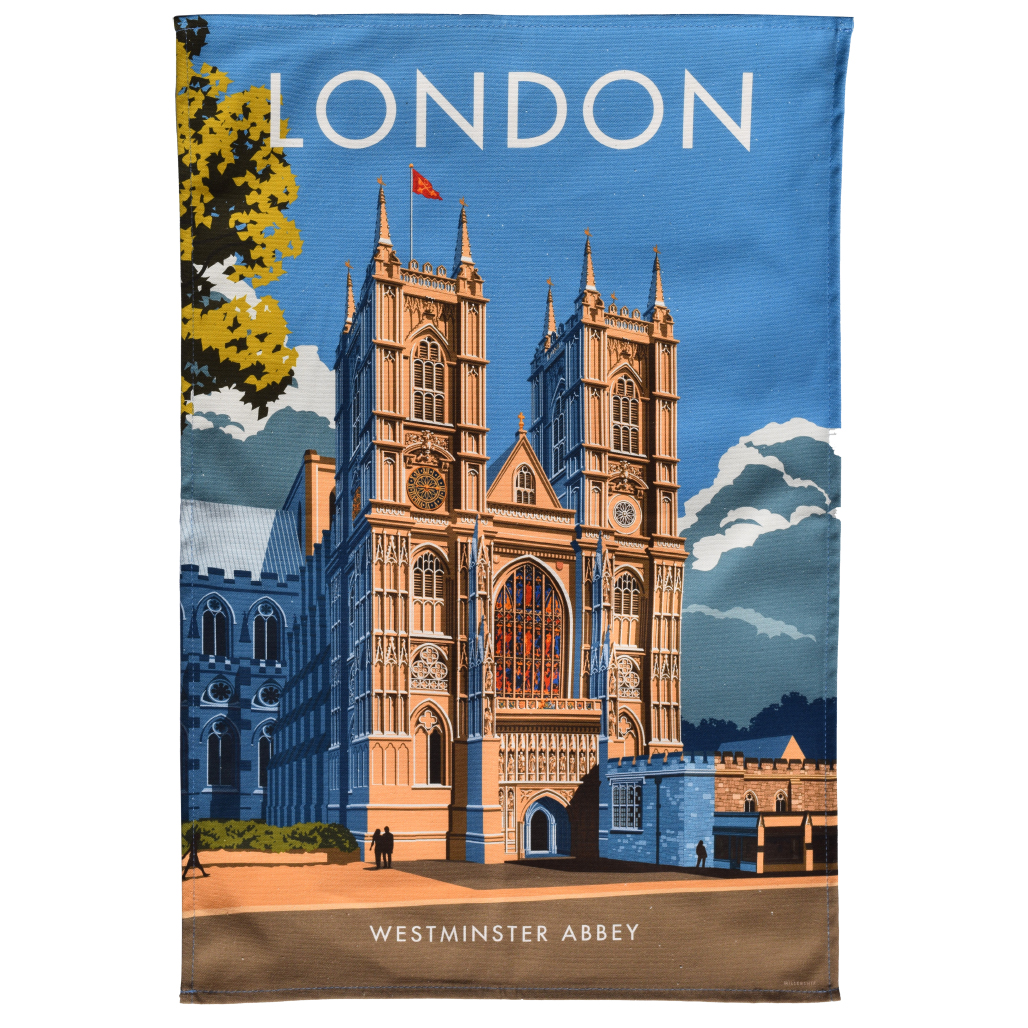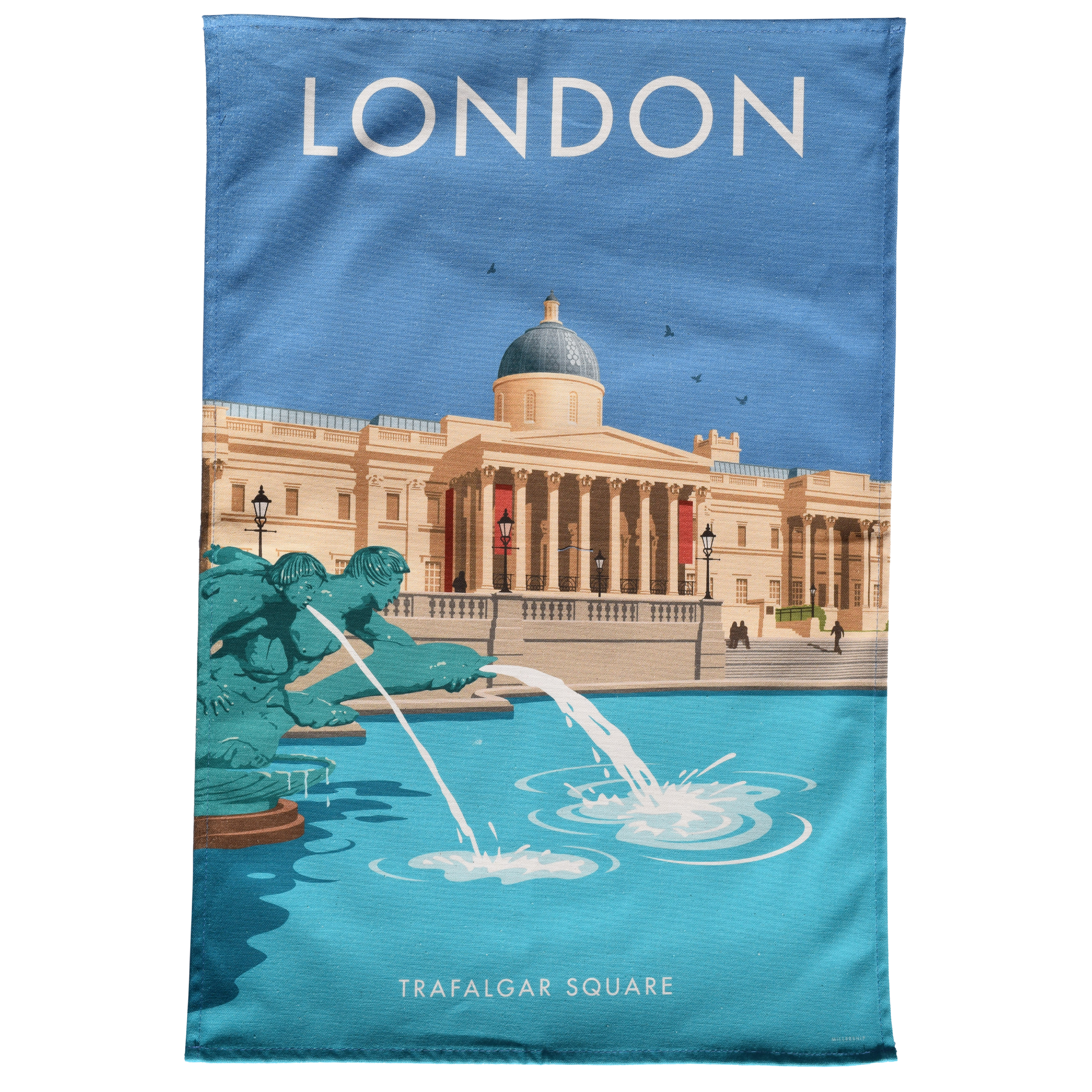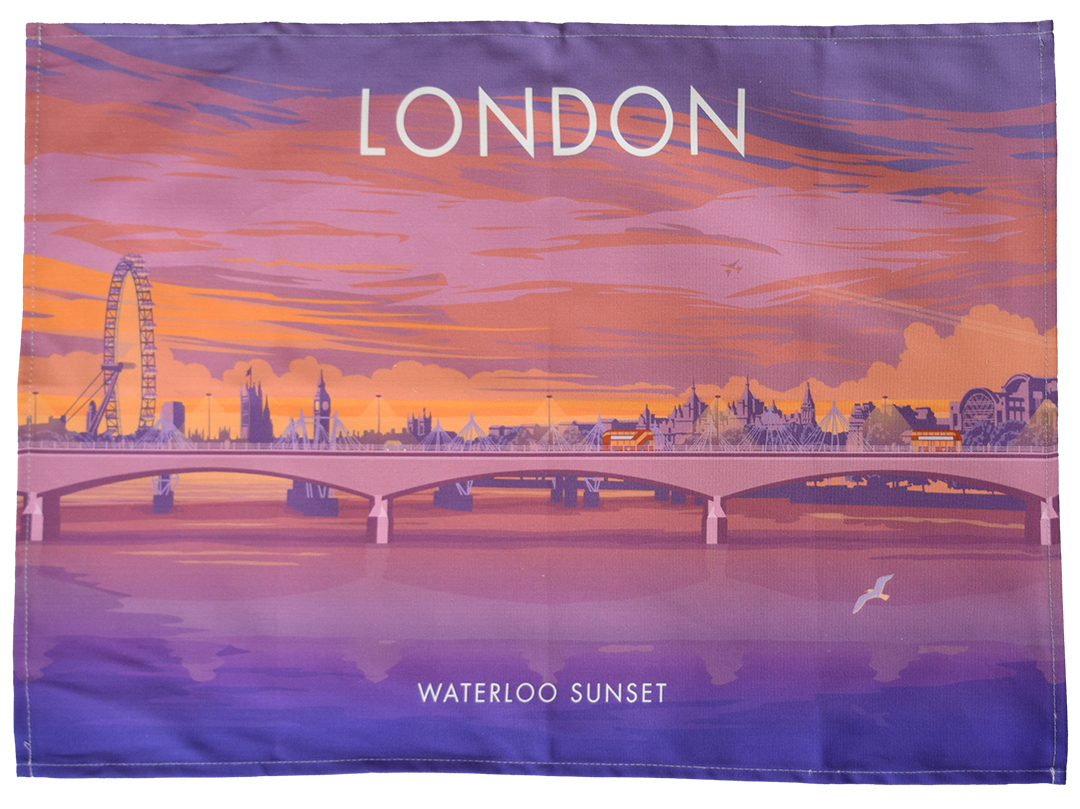London's Revolting Earls
Posted by Pete on 20th Apr 2022

Our historian, Pete, takes us on a journey back to 17th Century London
London. LDN. The Big Smoke. Whatever nickname you prefer, the UK capital is known and loved by people across the world.
Founded by the Romans on the banks of the Thames, London has lived through coronations and revolutions, festivals and wars.
For at least a century, London was effectively the capital of the world - so it's really no wonder that its history is so eventful.
Every London landmark - every cobbled side street - has a story to tell.
Westminster Abbey is among London's most iconic landmarks
Click here to view our Westminster Abbey tea towel
Westminster Abbey has seen most of England’s monarchs crowned, going back as far as Edward the Confessor (1003-66).
It really is a 'royal church', housing the tombs of countless kings and queens from times gone by.
But it's not only royalty who are commemorated in Westminster Abbey: it's also the site of Poet's Corner, where many of the great British writers of the past are memorialised.
Meanwhile, just a fifteen minute walk down Whitehall will take you to another of London's famous landmarks: Trafalgar Square.
Trafalgar Square has played a central role in the history of British democracy.
Click here to view our Trafalgar Square tea towel
For well over a century, protesters have convened at Trafalgar Square to make their voices heard.
It was here that the great Chartist rally of 1848 began - a key event in the development of democracy in Britain.
And over a hundred years later, in 1958, CND's first Aldermaston March set off from Trafalgar Square to the Atomic Weapons Research Establishment in Aldermaston, Berkshire.
But today I want to talk about another sort of protest - one that took place not in Trafalgar Square, but at The Globe Theatre in Southwark.
Theatrical home of the almighty William Shakespeare, the Globe might seem the sort of place where history is recreated, not made.
But every now and then, the border between the two can become a bit hazy...
The Globe, which sits on the south bank of the River Thames, is just a few minutes walk from Waterloo Bridge
Click here to view our Waterloo Sunset tea towel
February 1601 was just such an occasion, when the Globe found itself slap-bang in the middle of an attempted coup at the court of Queen Elizabeth I.
While the final years of Elizabeth’s reign saw a cultural renaissance in England around figures like Shakespeare and Marlowe, royal politics was being torn apart by faction.
And at the heart of this conflict was Robert Devereux, the 2nd Earl of Essex.
Once a favourite of the Queen, the witty Devereux had fallen into disfavour with Elizabeth after failing to defeat Irish rebels while posted there as her Lord Lieutenant in 1599.
Things quickly went from bad to worse for the Earl when he was put under house arrest after coming home to London.
By February 1601, Devereux had gathered together a band of similarly disgruntled followers - some of whom would join in the Gunpowder Plot against Parliament four years later.
Mobilising the popular support of Londoners, the conspirators meant to seize control of Elizabeth’s Court and overthrow the power of Elizabeth’s adviser and Secretary of State, Robert Cecil.
And this is where the Globe Theatre comes in.
With everything ready to go the next morning, eleven of Devereux’s followers went down to Southwark and paid Shakespeare’s actors to put on a special performance of Richard II.
The play, which tells the story of a failing monarch’s eventual downfall and murder, was controversial - not least because many thought Richard II was an unsubtle portrait of Elizabeth herself.
Devereux hoped that the play might inspire the rebels to victory. But as it happened, Essex’s Rebellion was an immense flop.
The authorities caught wind of his scheme in advance, and the rebels were easily caught and imprisoned on the morning of 8 February 1601.
Two weeks later, the Earl of Essex was beheaded at another, more ominous Thameside landmark: The Tower of London.
After a year of plotting, Devereux’s ambitions crumbled away. As King Richard says in Act 5, Scene 5:
"I wasted time, and now doth time waste me."



